Effective August 2nd, Colorado will vastly increase the ability for you to get your record sealed. Here’s what you need to know:
The bill requires the court to seal records when the case is completely dismissed not resulting from a plea bargain, the defendant is acquitted of all charges, the defendant successfully completes a diversion agreement, or when a defendant successfully completes a deferred judgment and all charges are dismissed.
Certain convictions can be sealed when:
- It is a petty offense or drug petty offense, a motion for sealing can take place 1 year after the later of final disposition and of criminal proceedings, or when a defendant is released from supervision concerning the conviction
- It is a Class 2 or 3 misdemeanor or any drug misdemeanor, a motion for sealing can take place 2 years after the later of final disposition and of any criminal proceedings, or when a defendant is released from supervision concerning the conviction
- It is a Class 1 misdemeanor, Class 4, 5, or 6 felony, or Level 3 or 4 drug felony, a motion for sealing can take place 3 years after the later of final disposition and of any criminal proceedings, or when a defendant is released from supervision concerning the conviction
- For all other offenses, a motion for sealing can take place 5 years after the later of final disposition and of criminal proceedings, or when a defendant is released from supervision concerning the conviction
There are some convictions which are ineligible for sealing, such as:
- Class A or B traffic infractions
- Class 1 or 2 traffic misdemeanors
- Any DUI convictions
- Any convictions where there is an underlying factual basis for unlawful sexual behavior
- Any conviction of child abuse
- Convictions with sentencing for extraordinary aggravating circumstances, extraordinary risk crimes, crimes against a pregnant woman, a special offender, domestic violence, sexual offenses, crimes of violence, and other specific sentencing circumstances.
In addition, the bill, on top of increasing the types of cases eligible for sealing, prohibits prosecutors from requiring any defendant from waiving their future right to seal as a condition of a plea agreement.
Additionally, the bill requires that records be sealed for defendants who were arrested because of mistaken identity and were not charged, that records for a defendant subsequently convicted of another crime must be unsealed, and that the court must provide a defendant with written advisement at sentencing and that Parole and Probation give the same written advisement to a defendant upon termination of supervision.
The bill excludes the ability to seal when a defendant is convicted with more than one offense and at least one of the convictions is ineligible for sealing, makes records for dismissed cases or cases where the defendant was not charged due to a plea agreement eligible for sealing once the records in the case of conviction are eligible for sealing, and prohibits the sealing of records if a defendant still owes fines, fees, restitution, or court costs unless the court has ordered those costs vacated.
Cases where charges were Class A or B traffic infractions, Class 1 or 2 misdemeanor traffic offenses, deferred judgments for defendants with CDL’s or who were operating commercial vehicles, and deferred judgments where the defendant plead guilty to felony unlawful sexual behavior cannot be sealed. The bill does not change current law that states that defendants are eligible for sealing when they successfully complete their diversion or no charges were filed, when charges were not filed and the Statute of Limitations has run, or when charges were not filed and the defendant is no longer being investigated by law enforcement.
Misdemeanor convictions have the ability to be sealed if the District Attorney consents to the sealing, or if the court finds that the needs for sealing are significant and substantial and that the person asking for the sealing is no longer a threat to society.
The law also creates separate sealing standards for convictions for victims of human trafficking, allows for the sealing of municipal convictions at least 3 years after the later of final disposition and of any criminal proceedings, or when a defendant is released from supervision concerning the conviction, and requires that when any motion for sealing is made that it is a critical stage under the Victim’s Rights Act and that the District Attorney notify the victim after the motion has been filed.
This new record sealing bill, HB19-1275 Increased Eligibility for Sealing of Criminal Records (find full text here), has many complicated new rules for sealing. If you are looking to seal a record, or have questions about if your past conviction can be sealed, call the Krizman Frim today at 303-529-2677.

Mr. Krizman is a criminal defense attorney in Denver, Colorado. He specializes in providing relentless defense for domestic violence, DUI, and drug crimes. He is a former public defender who has also worked for a district attorney and is licensed in the State of Colorado, and the United States Federal Court, District of Colorado. Mr. Krizman is a member of the Colorado Criminal Defense Bar, Colorado Bar Association, Denver Bar Association, and Arapahoe County Bar Association. A Colorado native, he has a law degree from the University of Denver Sturm College of Law, and a bachelor’s degree in Government and World Affairs from the University of Tampa. Call him today at 720.819.7317.
